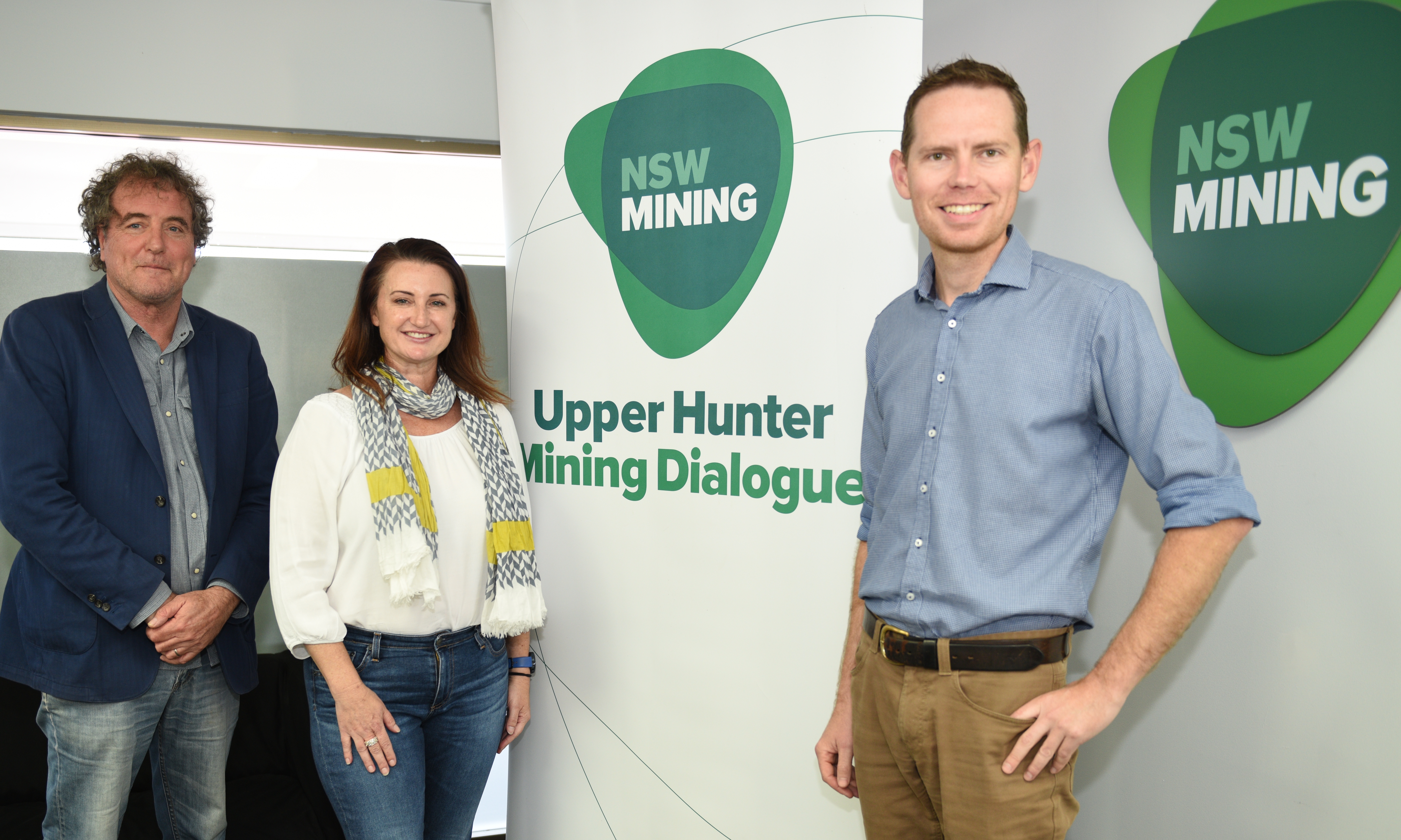
Decade of The Dialogue
Sarah Withell was in the audience at the very first forum of The Upper Hunter Mining Dialogue. That was back in 2010 and now she is chair of the organisation.
Over the past decade she has watched the organisation grow from strength to strength, opening pathways for honest and respectful conversations with a collaborative attitude from the industry that recognises the need to address mining impacts from a cumulative perspective.
The Dialogue has instigated world-first water studies, cattle grazing trials, rehabilitation projects and was catalyst to establishing the Upper Hunter Air Quality Monitoring Network after listening to community concerns.
Study results and activities are available on the Dialogue’s website and Sarah reassures the public there is no sugar-coating anything.
As an industry, the information paves the way for continuous improvement of how mining happens in the Hunter Valley.
The 150 or so people who turned up at that first forum did so with the right intent, with a willingness for open communication to happen between industry and community.
“From an industry perspective we were quite comfortable that we were doing a good job but to many people it wasn’t good enough and getting that feedback was quite confronting,” Sarah said.
“It opened the way for people to say what it is we can do better; changes we could make from the ground up and formally recognised that industry wanted to improve.
“We are linked to the Hunter Valley in that a lot of our miners live here, this is a proud community and that defensive attitude of the industry shifted from that first forum,” Sarah said.
“From both industry and community there was a willingness to listen and I credit the community leaders who helped us on that journey and showing that community participation helped us grow.”
From there the structure of the Dialogue ensured decisions were made in the best interests of the community.
Working groups were established to address key issues identified by the community. Issues such as air quality water quality and management, rehabilitation and the consequences the industry was having on broader community issues such as housing and traffic.
The Joint Advisory Steering Committee [SW1] was established in 2015 to lead the conversation and this saw a powerful shift moving forward.
“Over the past 10 years a lot has been achieved especially in the way operations relate with each other.”
Dialogue Secretariate Bob Mackie added that the point of difference in the Hunter Valley is that there are many mines owned and operated by different companies which is unlike other mining areas where one company dominates an area’s mining footprint.
The capacity of the Dialogue to get every mining company operating in the Hunter Valley at the same table to discuss cumulative impacts of the industry with community is a world-first.
While the Dialogue is a world-first, its capacity to address community concerns is being closely watched around the world.
Dialogue conversations with the International Council of Mining and Metals has led to interest in establishing a similar organisation in Brazil.
“They acknowledged our water quality standards and reporting transparency and it is quite incredible that our model is being picked up internationally,” Dialogue Secretariate James Barbien said.
“Last two forums have really been outstanding in that we changed the format which demonstrates the Dialogue’s ability to be agile, to motivate people to come into the dialogue, listen, take on feedback and adopt,” Sarah said.
Another tangible result of a forum five years ago was the introduction of mine tours by school students. At first the concept was deemed too difficult to consider but a working party was delegated the task and now 21 schools annually take part in the mine tours where students visit a mine site, are told about the mining process and visit rehabilitation sites.
Looking into the future, Sarah said the Dialogue will support diversification which she doesn’t see as a threat to mining but more an opportunity for new and innovative ideas with community playing an important leading role which industry and government can support.
Sarah Withel is the Executive General Manager Health Safety Environment at Whitehaven Coal.
